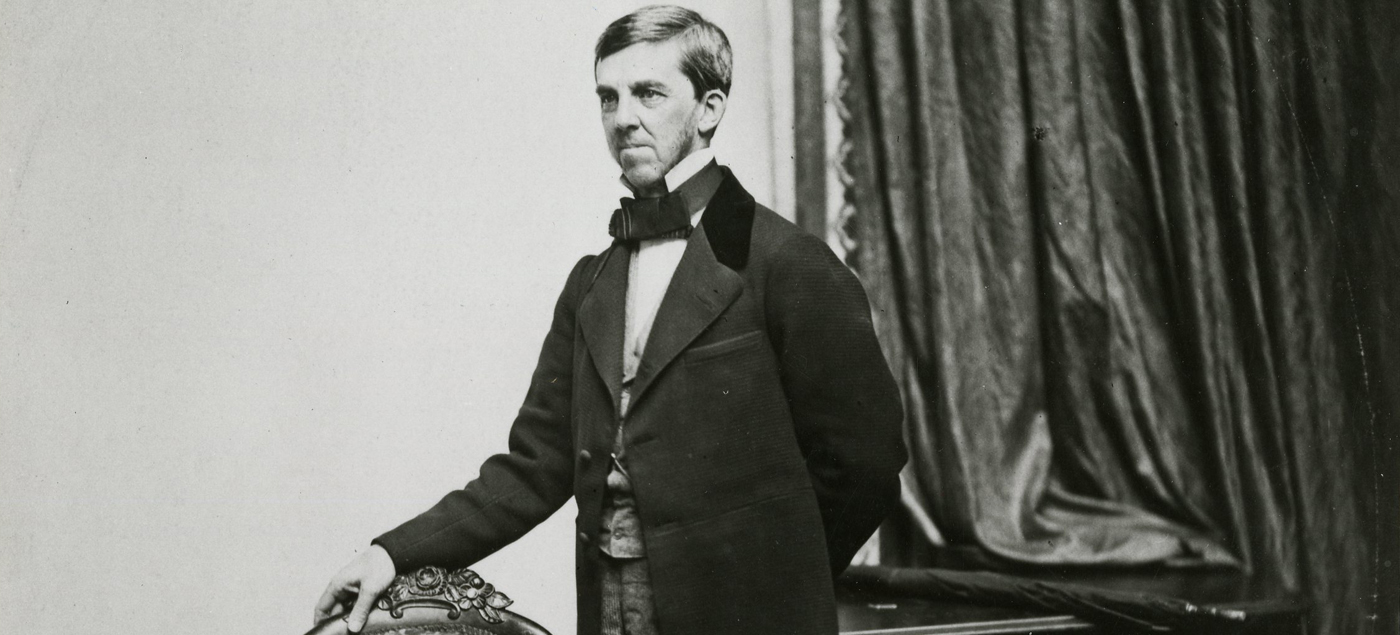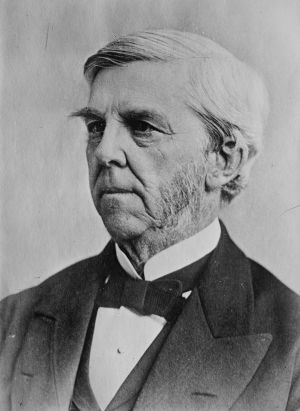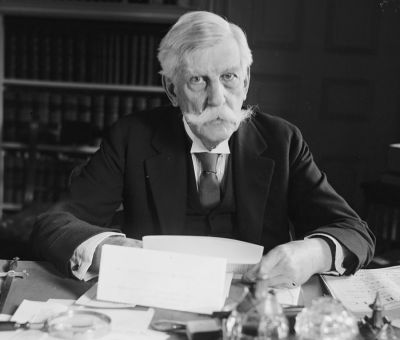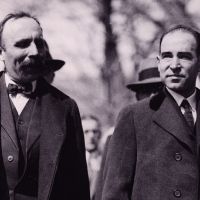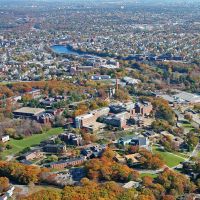Primary Source
OLD IRONSIDES
By Oliver Wendell Holmes
September 16, 1830
Ay, tear her tattered ensign down!
Long has it waved on high,
And many an eye has danced to see
That banner in the sky;
Beneath it rung the battle shout,
And burst the cannon's roar;
The meteor of the ocean air
Shall sweep the clouds no more.
Her deck, once red with heroes' blood,
Where knelt the vanquished foe,
When winds were hurrying o'er the flood,
And waves were white below,
No more shall feel the victor's tread,
Or know the conquered knee;
The harpies of the shore shall pluck
The eagle of the sea!
Oh, better that her shattered bulk
Should sink beneath the wave;
Her thunders shook the mighty deep,
And there should be her grave;
Nail to the mast her holy flag,
Set every threadbare sail,
And give her to the god of storms,
The lightning and the gale!
Holmes appended the paragraph that led to the writing of the poem.
"Old Ironsides.--- It has been affirmed upon good authority that the Secretary of the Navy has recommended to the Board of Navy Commissioners to dispose of the frigate Constitution. Since it has been understood that such a step was in contemplation we have heard but one opinion expressed, and that in decided disapprobation of the measure. Such a national object of interest, so endeared to our national pride as Old Ironsides is, should never by any act of our government cease to belong to the Navy, so long as our country is to be found upon the map of nations. In England it was lately determined by the Admiralty to cut the Victory, a one-hundred gun ship (which it will be recollected bore the flag of Lord Nelson at the battle of Trafalgar), down to a seventy-four, but so loud were the lamentations of the people upon the proposed measure that the intention was abandoned. We confidently anticipate that the Secretary of the Navy will in like manner consult the general wish in regard to the Constitution, and either let her remain in ordinary or rebuild her whenever the public service may require."--New York Journal of Commerce.
Reprinted in The Boston Advertiser, September 14, 1830.


